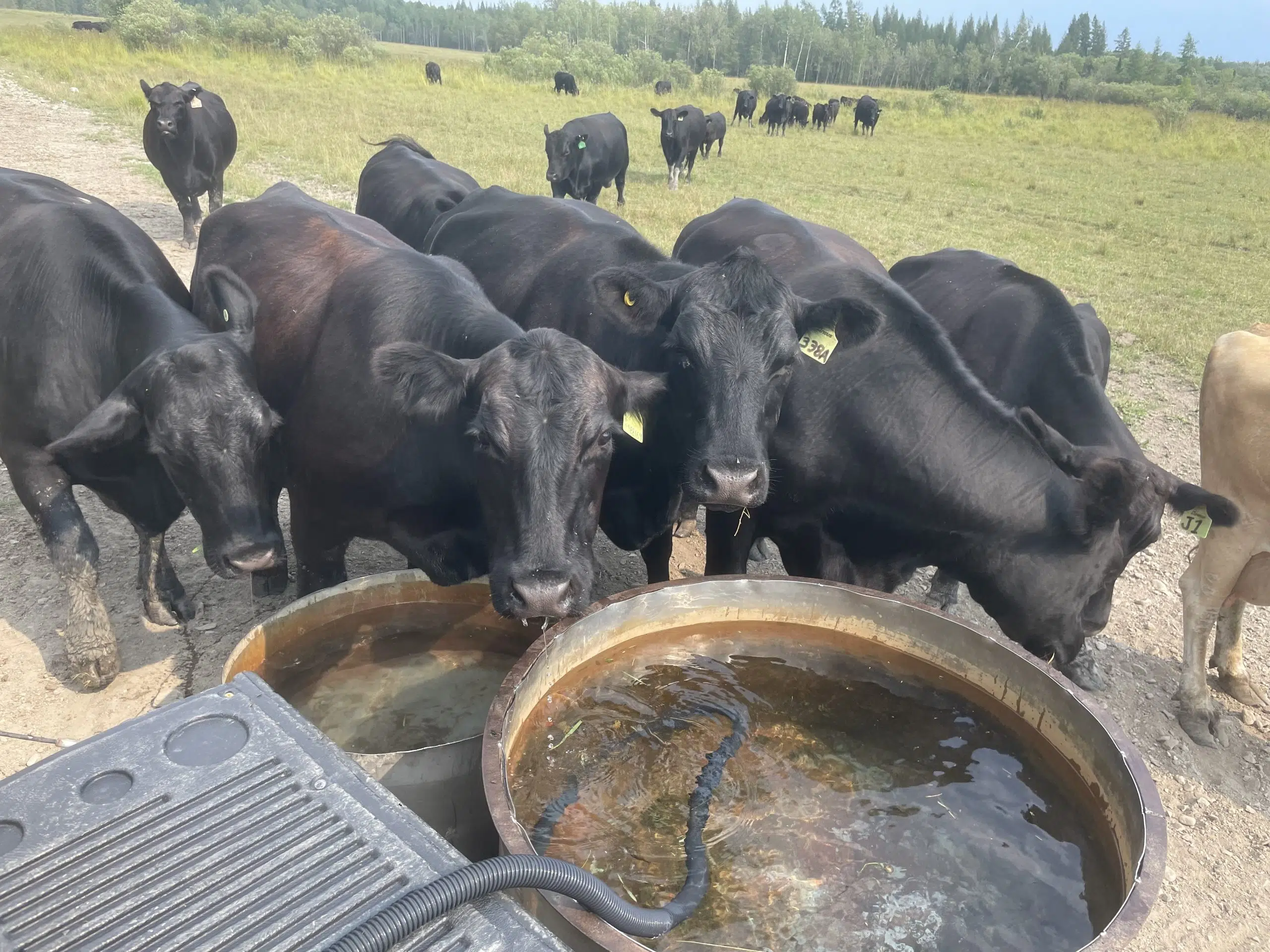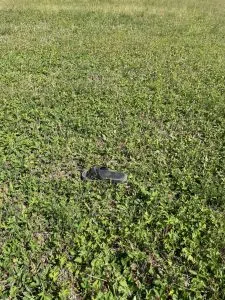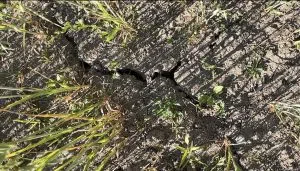
Rocking K Ranch Cattle coming in for water as natural water sources have dried up. Koshel and family haul water out to their pastures every day. Submitted.
Local farmers continue to feel the effects of what has been a hot and dry summer.
“Some of the records that are being broken right now they’re saying this is the worst drought that we’ve had in Northwestern Ontario and across the Prairies in the last 150 years, so it’s pretty significant,” says Lisa Koshel, beef producer at Rocking K Ranch in Oxdrift. “In general things just aren’t growing, we haven’t had enough moisture to develop any sort of crops.”
Area farmers are seeing anywhere between 20-40% of the hay they normally would and Koshel explains this means not enough feed for winter.

A hay field that is usually waist high on Koshel’s farm is nothing but weeds this summer. Submitted.
“Our hay crops have been about 30% of what we normally would need to keep our herd over the winter. It’s kind of two fold because we’re running out of pasture since it’s no longer growing so we’re in a situation where we’re looing at having to feed our animals starting very soon and some people are already feeding. Normally we wouldn’t be feeding our winter hay supply until end of September or October, so we’re looking at an extra three months that we’re having to feed hay to our animals. In a lot of cases if we’ve only got 30% of our crop, we’re in a very short fall position.”
Farmers are being forced to make life changing decisions, including selling some or the majority of their herd that took generations to breed in order to downsize and fit their animals into the amount of feed they have. In turn, calves are going to market early and being sold at much lower weights.
Koshel notes those who aren’t farmers will also feel the impact of this drought on their future bills at the grocery store.
“Maybe not in the immediate future because there are a lot of animals being sent to be processed but in six months from now, there’s going to be a lag in the amount of product you can find on the shelves. This means not being able to find what you want when you want it, but also the product you can find may be significantly higher in price.”
Koshel stresses these are desperate times and any money going into local farmers’ pockets helps.

A closer look at the dry, cracked crops at Rocking K Ranch. Submitted.
“Some of them (farmers) may be loosing their livelihood, certainly changing how they do business and it’s taking a toll. We put our heart and soul into these farms and these animals. They aren’t necessarily pets per say, but we have a connection to them and anytime we have to make life changing decisions for them, it’s difficult. A little bit of kindness goes a long way and if you know someone in agriculture, reach out to them.”
When it comes to Koshel’s farm, she says there’s a lot of uncertainty right now and won’t be expanding their operations as they had planned.
Funding Support
The province has committed 800 thousand dollars for the Kenora and Rainy River Districts in the form of feed and 1.2 million for water resources and temporary fencing to add onto pastures.
Buying Local-Cloverbelt Country Farmer’s Markets
Thursdays-Dryden Arena Parking Lot
Saturdays-Oxdrift Hall
Mental Health Support- Canadian Mental Health Association
Dryden 807-223-8841
Kenora 807-468-1838
Fort Frances 807-274-2347
Sioux Lookout 807-737-4996
Red Lake 807-727-2162



